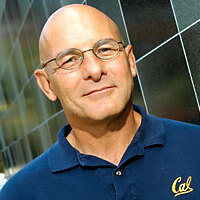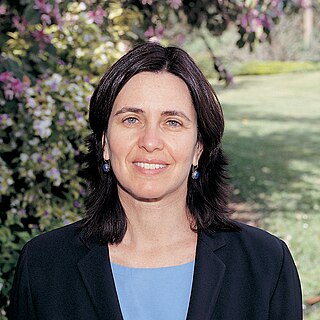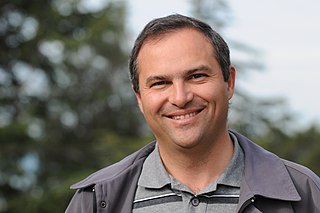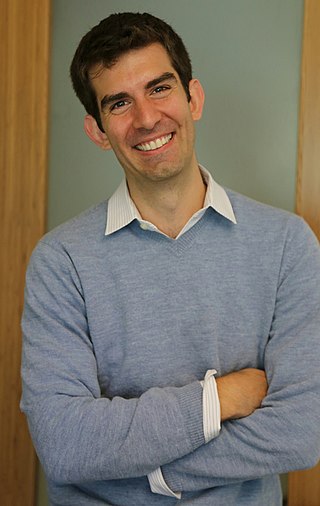Related Research Articles

John Kenneth Ousterhout is a professor of computer science at Stanford University. He founded Electric Cloud with John Graham-Cumming. Ousterhout was a professor of computer science at University of California, Berkeley where he created the Tcl scripting language and the Tk platform-independent widget toolkit, and proposed the idea of coscheduling. Ousterhout led the research group that designed the experimental Sprite operating system and the first log-structured file system. Ousterhout also led the team that developed the Magic VLSI computer-aided design (CAD) program.

The School of Computer Science (SCS) at Carnegie Mellon University in Pittsburgh, Pennsylvania, US is a school for computer science established in 1988. It has been consistently ranked among the top computer science programs over the decades. As of 2022 U.S. News & World Report ranks the graduate program as tied for second with Stanford University and University of California, Berkeley. It is ranked second in the United States on Computer Science Open Rankings, which combines scores from multiple independent rankings.

David Andrew Patterson is an American computer pioneer and academic who has held the position of professor of computer science at the University of California, Berkeley since 1976. He announced retirement in 2016 after serving nearly forty years, becoming a distinguished software engineer at Google. He currently is vice chair of the board of directors of the RISC-V Foundation, and the Pardee Professor of Computer Science, Emeritus at UC Berkeley.

Shafrira Goldwasser is an Israeli-American computer scientist and winner of the Turing Award in 2012. She is the RSA Professor of Electrical Engineering and Computer Science at Massachusetts Institute of Technology; a professor of mathematical sciences at the Weizmann Institute of Science, Israel; the director of the Simons Institute for the Theory of Computing at the University of California, Berkeley; and co-founder and chief scientist of Duality Technologies.

Eric Paulos is an American computer scientist, artist, and inventor, best known for his early work on internet robotic teleoperation and is considered a founder of the field of Urban Computing, coining the term "urban computing" in 2004. His current work is in the areas of emancipation fabrication, cosmetic computing, citizen science, New Making Renaissance, Critical Making, Robotics, DIY Biology, DIY culture, Micro-volunteering, and the cultural critique of such technologies through New Media strategies.

Randal E. Bryant is an American computer scientist and academic noted for his research on formally verifying digital hardware and software. Bryant has been a faculty member at Carnegie Mellon University since 1984. He served as the Dean of the School of Computer Science (SCS) at Carnegie Mellon from 2004 to 2014. Dr. Bryant retired and became a Founders University Professor Emeritus on June 30, 2020.
Venkatesan Guruswami is a senior scientist at the Simons Institute for the Theory of Computing and Professor of EECS and Mathematics at the University of California, Berkeley. He did his high schooling at Padma Seshadri Bala Bhavan in Chennai, India. He completed his undergraduate in Computer Science from IIT Madras and his doctorate from Massachusetts Institute of Technology under the supervision of Madhu Sudan in 2001. After receiving his PhD, he spent a year at UC Berkeley as a Miller Fellow, and then was a member of the faculty at the University of Washington from 2002 to 2009. His primary area of research is computer science, and in particular on error-correcting codes. During 2007–2008, he visited the Institute for Advanced Study as a Member of School of Mathematics. He also visited SCS at Carnegie Mellon University during 2008–09 as a visiting faculty. From July 2009 through December 2020 he was a faculty member in the Computer Science Department in the School of Computer Science at Carnegie Mellon University.

Gary Lee Miller is a professor of Computer Science at Carnegie Mellon University, Pittsburgh, United States. In 2003 he won the ACM Paris Kanellakis Award for the Miller–Rabin primality test. He was made an ACM Fellow in 2002 and won the Knuth Prize in 2013.

George Ciprian Necula is a Romanian computer scientist, engineer at Google, and former professor at the University of California, Berkeley who does research in the area of programming languages and software engineering, with a particular focus on software verification and formal methods. He is best known for his Ph.D. thesis work first describing proof-carrying code, a work that received the 2007 SIGPLAN Most Influential POPL Paper Award.

Ion Stoica is a Romanian–American computer scientist specializing in distributed systems, cloud computing and computer networking. He is a professor of computer science at the University of California, Berkeley and co-director of AMPLab. He co-founded Conviva and Databricks with other original developers of Apache Spark.
Dawn Song is a Chinese American academic and is a professor at the University of California, Berkeley, in the Electrical Engineering and Computer Science Department.

Anthony "Tony" I. Wasserman, is an American computer scientist. He is a member of the board of directors of the Open Source Initiative, was a professor of the Practice in Software Management at Carnegie Mellon Silicon Valley, and is executive director of the CMU Center for Open Source Investigation. He has been a SkyDeck accelerator program advisor at University of California, Berkeley since 2021.

Timothy Avelin Roughgarden is an American computer scientist and a professor of Computer Science at Columbia University. Roughgarden's work deals primarily with game theoretic questions in computer science.

Jeffrey Adgate "Jeff" Dean is an American computer scientist and software engineer. Since 2018, he has been the lead of Google AI. He was appointed Alphabet's chief scientist in 2023 after a reorganization of Alphabet's AI focused groups.

Adam Wierman is Professor of Computer Science in the Department of Computing and Mathematical Sciences at the California Institute of Technology. He is known for his work on scheduling (computing), heavy tails, green computing, queueing theory, and algorithmic game theory.

Rob A. Rutenbar is an American academic noted for contributions to software tools that automate analog integrated circuit design, and custom hardware platforms for high-performance automatic speech recognition. He is Senior Vice Chancellor for Research at the University of Pittsburgh, where he leads the university's strategic and operational vision for research and innovation.

The Kahlert School of Computing is a school within the College of Engineering at the University of Utah in Salt Lake City, Utah.
Alexei Lvovich Efros is an American theoretical physicist who specializes in condensed matter physics. He is currently a distinguished professor at University of Utah.

Michael James Carey is an American computer scientist. He is currently a Distinguished Professor (Emeritus) of Computer Science in the Donald Bren School at the University of California, Irvine and a Consulting Architect at Couchbase, Inc..

Kenneth L. McMillan is an American computer scientist working in the area of formal methods, logic, and programming languages. He is a professor in the computer science department at the University of Texas at Austin, where he holds the Admiral B.R. Inman Centennial Chair in Computing Theory.
References
- ↑ "Alexei vs. Alyosha". Department of EECS. University of California, Berkeley. Retrieved 14 June 2017.
- ↑ Ward, Mark (8 August 2007). "Photo tool could fix bad images". BBC News. Retrieved 10 June 2017.
- ↑ Geere, Duncan (8 August 2012). "The software that can identify cities from their architecture". Wired. Archived from the original on 22 March 2016. Retrieved 22 March 2016.
- ↑ Bhanoo, Sindya N. (11 August 2014). "3-D Tool Guesses What a Photo Is Missing". The New York Times. Retrieved 10 June 2017.
- ↑ Twilley, Nicola (22 August 2014). "Out of Many, One: The Science of Composite Photography". The New Yorker. Retrieved 10 June 2017.
- ↑ Togyer, Jason (21 August 2011). "In the Loop: Alexei Efros". www.scs.cmu.edu. Carnegie Mellon School of Computer Science. Retrieved 10 June 2017.
- ↑ "Alexei A. Efros". John Simon Guggenheim Foundation. Retrieved 10 June 2017.
- ↑ Ormond, Jim (19 April 2017). "Alexei Efros receives 2016 ACM Prize in Computing". ACM. Retrieved 10 June 2017.